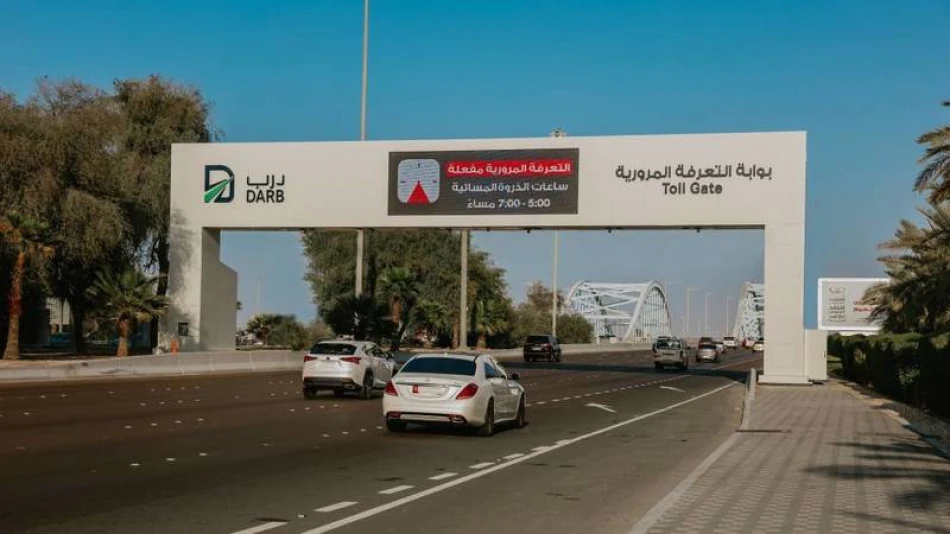
New Traffic Tariff Adjustments Effective September 1st in Abu Dhabi
Abu Dhabi Removes Traffic Toll Caps in Bold Move to Combat Peak-Hour Congestion
Abu Dhabi is scrapping daily and monthly limits on its "Darb" road toll system starting September 1, 2025, marking a significant shift toward unlimited congestion pricing. The move extends evening toll hours and eliminates the current AED 16 daily cap, potentially making Abu Dhabi one of the world's most aggressive cities in using pricing mechanisms to manage urban traffic flow.
Key Changes Signal Pricing Revolution
The Integrated Transport Centre, under Abu Dhabi's Department of Municipalities and Transport, announced sweeping modifications to the emirate's toll structure. The most dramatic change removes all daily and monthly fee caps for private vehicles, abandoning the current system that limited charges to AED 16 per day or AED 200, 150, and 100 monthly for first, second, and third-plus vehicles respectively.
Evening toll periods will expand from 3:00 PM to 7:00 PM, while morning charges remain unchanged at 7:00-9:00 AM, Monday through Saturday. The basic AED 4 toll per gate crossing stays intact, but frequent commuters could now face substantially higher monthly bills.
Strategic Traffic Management Through Economic Pressure
Learning from Global Congestion Pricing Models
Abu Dhabi's approach mirrors aggressive congestion pricing strategies seen in London and Singapore, but goes further by removing spending caps entirely. London's congestion charge currently stands at £15 per day with no multiple-crossing penalties, while Singapore's Electronic Road Pricing varies by time and location but maintains predictable maximums.
The emirate's unlimited pricing model represents a more market-driven approach, allowing toll revenues to fluctuate based on actual usage rather than artificial caps. This could generate significantly higher revenue while creating stronger economic incentives for behavioral change.
Social Equity Measures Remain Intact
Despite the pricing liberalization, Abu Dhabi maintains exemptions for people with disabilities, low-income families, senior citizens, and retirees. This targeted approach suggests authorities aim to balance traffic management with social responsibility, avoiding the regressive taxation criticism that often accompanies congestion pricing schemes.
Market and Economic Implications
The policy shift could boost revenues for Q Mobility, the ADQ subsidiary managing the Darb system, while creating new market dynamics in Abu Dhabi's transportation sector. Higher toll costs may accelerate adoption of public transport, ride-sharing, and flexible work arrangements.
For businesses, the change introduces new cost variables for employee commuting and logistics operations. Companies may need to adjust compensation packages or relocate operations to minimize toll exposure, potentially reshaping Abu Dhabi's commercial geography.
Testing Ground for Regional Traffic Policy
As other Gulf cities grapple with rapid urbanization and traffic congestion, Abu Dhabi's experiment with unlimited toll pricing could serve as a regional benchmark. Dubai, Riyadh, and Doha are all exploring various congestion management strategies, making Abu Dhabi's results closely watched across the region.
The September 2025 implementation provides nearly a year for residents and businesses to adapt their transportation strategies. Success will likely be measured not just in traffic flow improvements, but in public acceptance and economic impact on different income groups despite the exemption policies.
Most Viewed News

 Sara Khaled
Sara Khaled






